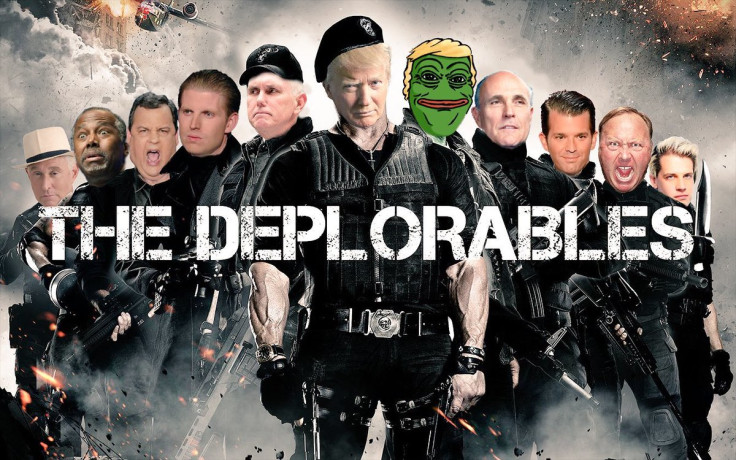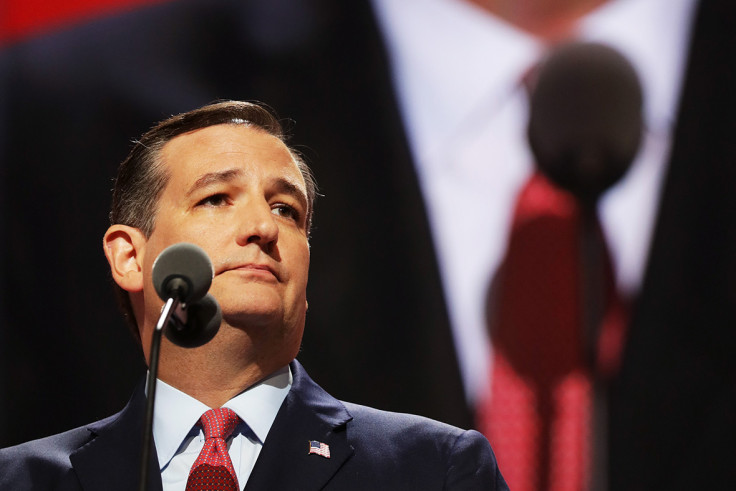The Great Meme War helped Donald Trump win — now Europe should prepare for the hidden battle
4Chan and Reddit shaped the narrative around Trump and Clinton with memes that swung the US election.
When Donald Trump became the Republican nominee in July 2016 it was almost inconceivable that he could make it to the White House. Yet in January 2017 Trump was inaugurated as the 45th president of the United States.
How Trump won will be debated for years to come and the task of understanding his victory will be a burden for analysts and historians from all political backgrounds.
For social media platforms 4chan and Reddit though, the Trump victory was the result of a long, hard-fought war: The Great Meme War. Many of you have likely not heard of it, though all of us were very much affected by it and will be dealing with its repercussions for years to come.
We believe it was a significant reason behind Trump's victory and it signals the need for politicians and political parties to better understand the internet, the different kinds of groups that are active, and how to work with or against these groups during election campaigns.
The longer politicians refrain from doing so, the more likely populist politics is here to stay.
The Great Meme War
There are tens of thousands of examples of memes, from the peace and love symbol, to the smiley face, to Jesus on the cross. Memes are the building blocks of culture. The idea at the heart of memes is the concept of transmission – content only becomes a meme by spreading.
An "internet meme" is the evolution of this: a cultural idea or symbol that is shared online. They have become a cornerstone of the online experience.

Had commentators and pundits been paying closer attention to memes, the result of the US presidential election may not have been as much a surprise as it was. The influencers in this election were not journalists, celebrities or politicians. They weren't even the main social media channels like Facebook, WhatsApp, and Twitter.
4chan and Reddit were where attack ads were inspired and honed, negative associations cultivated, messages tested and iterated, content weaponised and released.
It was on these platforms that the online battle for the US election was being fought and won. And it was being fought and won on behalf of President Trump by a volunteer army of internet trolls.
4chan: A dark corner of the internet
4chan is an image-based social network. 4channers generally do not try to take the moral high ground, quite the opposite – they try to take the moral low ground – and they have no problem in using language that the "liberal establishment" sees as offensive. Elements within the site represent a complete rejection of political correctness on the internet.
Compared to the generally liberal platforms of mainstream social media (Facebook, Twitter etc.), 4chan caters to those who have extreme views, and many who reject liberal multicultural values.
These users mythologise the state of the system as being controlled by Jews and Zionists, a New World Order, George Soros, that minorities are being led on by a small elite. It is a beating heart of online conspiracy theorists.
President Trump's rallies were attended by a similar, though different, type of people: those who saw the liberal establishment as failing to meet their needs, and who had grown increasingly frustrated with the perceived prioritisation of the struggles of minority groups at the expense of their own. A perfect storm was born.
When memes went mainstream
Clinton was getting stick from 4chan long before Trump had become the 4chan "God Emperor". In the Democrat primaries, a meme called "Bernie or Hillary?" came into force which was used to compare the two candidates and show their thoughts on certain issues.
The creators of the meme shared the idea that Sanders was "cool", and could connect with his followers through a strong knowledge of subcultures, whereas Clinton was depicted as ignorant or exploitative of popular culture.
With this perception developed during the Democratic primaries, every time Clinton tried to harness a meme in the presidential campaign it only reinforced that exploitative stereotype. And she tried to use memes a lot: whether through asking people to "Describe your student loan debt in three emojis or less", learning how to dab on The Ellen DeGeneres Show, or the mannequin challenge on-board her campaign plane.
Worse, her team came out and condemned a meme, Pepe the Frog, as a hate symbol and referred to Trump's following as a "basket of deplorables". The term has become widespread since, and not in a good way: it is now used as a badge of honour.
In her defence, Pepe the Frog had become a neo-Nazi hate symbol. The issue was that Clinton's campaign engaged with the memetic idea of Pepe rather than the political narrative that Pepe had come to represent, and in doing so she further provoked an online anonymous enemy with a dangerous skillset: the ability to create viral content.
The rise of 'God Emperor Trump'
Memes didn't just target Hillary. Bill was targeted for his sexual misdemeanours frequently and Ted Cruz also got it in the neck. The Texas senator was compared to inanimate objects and animals such as the blobfish, awkward camera moments of him were shared, and a conspiracy theory circulated that Cruz was the Zodiac Killer. Arguably, the perception of Cruz created by The Great Meme War defeated his presidential ambitions.
Trump did not have such difficulty. Memes on the new president were designed to honour him as a candidate that the right could engage with. These included the neo-Nazi Pepe the Frog meme and one very appropriately named "God Emperor Trump".
The president was praised by users for his political incorrectness and directness of speech, and 4channers turned many of his tweets into memes. Using "Sad!" at the end of a tweet, for example, became popular.
Trump himself got involved in the meme game, though perhaps unwittingly, when he retweeted a picture of a superimposed Trump/Pepe the Frog with the caption "You Can't Stump the Trump". He may not have made memes himself, but he acknowledged the support he got without engaging in the meme culture around him.
The Great Meme War worked
Research has demonstrated the effectiveness memes conceived on 4chan have had on the American public. A Public Policy Polling poll in February 2016 found that a whopping four in 10 (38%) of Florida voters thought it viable that Ted Cruz was the Zodiac Killer. One in 10 (10%) said they had no doubt he was.
#Pizzagate, another 4chan conspiracy, not only led to an individual firing a gun in a pizza restaurant but according to YouGov research has more than half of Donald Trump supporters and a third of Democrats believing it to be true. The conspiracy revolves around the Clintons being involved in a human trafficking ring.

When Trump won there were celebrations on 4chan and Reddit. But that wasn't all that happened.
After his victory a new series of threads started to appear promoting a meme war in Europe to help elect the far-right and we're already seeing advice on meme virality shared along with translation help. The recent news that Reddit has shut down alt-right threads is unlikely to make much difference – users will coalesce elsewhere.
There are solid foundations for European memesters to build upon. French presidential hopeful François Fillon is currently dogged by a political scandal around paying his wife what was originally thought to be less than €500,000 (£425,000, $532,650) but is now purportedly closer to €1m. No one knows what the money was for.
We recently saw Italian Prime Minister Matteo Renzi resign following a referendum on constitutional reform. Remarkably it turned out that the younger age groups were very much opposed to the reform, the age groups that are most likely to be targeted and affected by another meme war this side of the pond.
The conditions in Europe are ripe.
Tom Hashemi is director and Tim Moots is communications researcher at We are Flint – a research-driven design and communications agency.
© Copyright IBTimes 2025. All rights reserved.






















